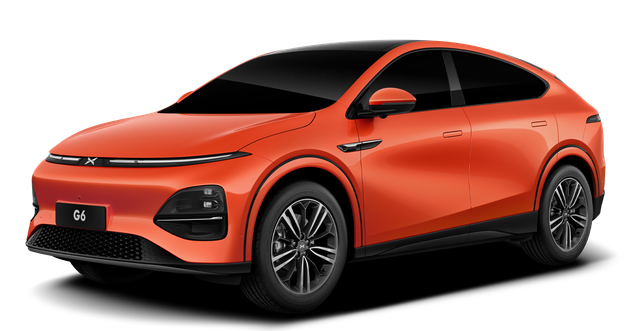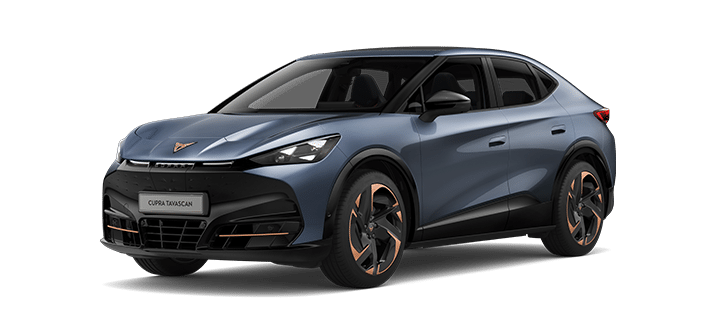TCO electric car vs combustion engine
Total cost of ownershiptotal cost of ownership"(TCO) of an electric car results in lower lower costs than for combustion models.
So, with an electric vehicle, fuel costs and the many maintenance-related expenses are subtracted in the case of an electrified model.
In fact, when it comes to electric car maintenance, it is estimated that the annual cost is on average 35% lower for a 100% electric vehiclecompared with an equivalent internal combustion model.
Nevertheless, despite a further rise in electricity prices announced for 2023the budget for charging of an electric car is still significantly lower than the cost of a full tank of petrol for a combustion-powered model.
See also : How much will an electric car cost in 2023?
Choosing electric vehicles according to your company's needs
To keep your electric vehicle costs under control, it's essential to choose the right electric car for your business.
In fact, if your business requires you to travel regularly, it would be wiser to opt for an electric vehicle that's autonomous enough to cover the distances you cover on a daily basis.
Thus, the acquisition of a vehicle with sufficient sufficientautonomy and a size that matches your needs will enable you to reduce the operating costs associated with recharging frequent recharging.
On the other hand, if you only use your company electric vehicle for journeys within a limited area, particularly in urban areas, then a long-range electric vehicle such as an electric SUV will not be necessary.
In this case, it would be wiser for you to opt for an electric city car that's better suited to your business needs, more economical to buy and, what's more, less energy-consuming.
The advantage of electric city cars, with their smaller battery and relatively limited engine size, is that they consume less energy than electric cars. energy consumption than an electric SUV.
For example, an electric SUV such as a Kia EV6 consumes around 22 kWh/100 kmfor an electric motor rated at 125 kW (170 hp).
In comparison, a small electric city car like the Renault Twingo E-Techconsumes just 15 kWh/100 kmon average, for an electric motor of 60 kW (81 hp) electric motor..
So it's vital to make the right choice of models for your professional electric vehicle, in order to reduce your energy consumption costs and optimize your vehicle's running costs.
See also : 8 tips to reduce the energy consumption of your electric car
It's also worth remembering that the recharging speed is at least as important as range for an electric car.
An electric vehicle, however autonomous it may be, must be able to charge quickly and be compatible with fast charging stations available to the public.
An efficient recharging speed means that, as a motorist, you'll benefit from non-negligible time savings. significant time savingsespecially if you use your vehicle for professional purposes.
Read also: Top 10 fastest-charging electric cars
Make your energy transition now, with several new 100% electric vehicles available for leasing from Beev!
Plan your business trips
Another point of attention concerns the need to plan the business trips you plan to make with your electric car.
Let's take the example of a craftsman who transports his materials to his customers' homes, using his electric van.
In this case, the aim is to optimize the time and money spent on journeys. In addition, planning your itinerary in advance results in other benefits, such as minimizing energy consumption and the need to recharge your electric van.
What's more, if you're a company making deliveries by electric van, planning your delivery routes will help you to be more efficient in your rounds, both in terms of time management and the energy used by the vehicle.
Read alsoi : Electric van delivery: advantages and which van to choose?
To make it easier for you to plan your business electric vehicle journeys, there are a number of applications for electric vehicles are now available to help you to ensure optimum, intelligent planning planning.
Adapting the driving style of your electric car
In order to lower the running costs of your electric car, another option is toadapt your driving style so that it consumes as little energy as possible.
Adopting a smoother smoother drivingfor example, will reduce your energy consumption as well as the wear and tear on your brake pads and tires, resulting, at the same time, in a lower potential to repair or replace these parts.
In addition, as a company, it is essential to ensure awareness and training of your employees particularly delivery personnel, to ensure optimal use of company vehicles and electric vans.
Indeed, as a company, eco-driving training to teach employees good practices may be necessary, particularly to guide those who are making their first transition to an electric vehicle.
It's a good idea to make your employees aware of the importance of speed reduction when driving, but also on theoptimized use of electric car of the electric car. For example, it's important to use the vehicle's air conditioning and heating sparingly, as these are particularly energy-intensive.
See also : How can you raise employee awareness of eco-driving?
Adopting these different practices will help toincrease vehicle autonomyresulting in more frequent rechargingand therefore lower running costs for your daily business trips.
In addition, you can also train your employees to use the charging stations to optimize the recharging of their company electric vehicle at the charging points provided by the company.
What's more, as a company, you can also set up a maintenance program for electric vehicles.
This will enable you to avoid unnecessary repair costs and ensure optimized use and continuous availability of your vehicle fleet, especially your electric delivery vans.
See also : Company benefits in kind and electric vehicles
Optimizing the cost of recharging
If you're looking to minimize your business electric car expenses, you'll also need to optimize the cost of recharging of your vehicle.
That's why it's important to have access to a recharging solution that allows you to pay your own electricity costs. You have two possible options:
- home recharging at a private recharging point
- in-company recharging on your business site
Firstly, as a company, you can choose to install charging stations on your premises and enable your employees to recharge their company cars directly at their place of work.
Setting up charging stations for electric vehicles and vans within the company is a good way of getting round the cost of a public charging station. It also provides your employees with a more economical recharging solution, lowering the cost of owning your company's electric vehicles.
What's more, having charging stations at your company - and especially if they're fast-charging stations delivering a minimum of 43 kWh direct current (DC) - will enable you to benefit from fast charging for all your company's electric vehicles, particularly useful for your delivery vehicles if you need to avoid delays.
See also : 5 reasons to install charging stations on your premises
If you're not planning to install charging points in your company parking lot, in which case you can also opt toinstalling charging stations directly at your employees' homes.
In fact, having a charging point at home has the advantage of simplifying control over electricity consumption costs.
In addition, as an employee or craftsman with a home charging station, you can choose to charge your business vehicle only during off-peak hours, in order to benefit from lower electricity rates. This will enable you to optimize your charging and, more generally, save on the cost of owning your electric vehicle.
See also : Electric vehicle fleet: the complete guide
In conclusion
You now have all the keys you need to optimize the running costs of your electric car.
To sum up, to reduce the running costs of an electric vehicle, it's important to choose a vehicle model that's compatible with your uses and your professional activity.
What's more, planning and adapting your electric driving will enable you to optimize your vehicle's range and lower your energy consumption, and therefore your business travel costs.
Finally, whether you're installing charging stations on your premises or at your employees' homes, choosing the most appropriate charging solution is a key factor in optimizing your costs.
Now you know how to get the most out of your electric car without spending more.
For more information, we've put together a guide to this topic to explore the different aspects in depth:
Read our article about :
Are you planning to renew your company fleet? Take a look at our best electric vehicle offers, currently available for leasing.

































